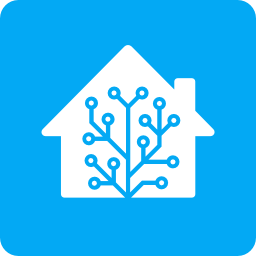Solved!
Solution was to create a group and perform an action on that:
action: light.turn_on
target:
entity_id: light.kitchen_cabinet_sink
data_template:
brightness_pct: "{{100*state_attr('light.kitchen_sink_ceiling','brightness')/255}}"
Original:
Trying to run an automation to match one light’s state (on/off/dim) to another’s. Have this currently:
alias: Sync cabinet lights with sink light
if:
- condition: device
type: is_on
device_id: [something]5710
entity_id: [something]a438
domain: light
then:
- type: turn_on
device_id: [something]b447
entity_id: [something]470f
domain: light
brightness_pct: 100
else:
- type: turn_off
device_id: [something]b447
entity_id: [something]470f
domain: light
That works fine to turn the lights on or off, and I have triggers in the automation for that and changes in brightness. But using a non-static number for brightness_pct (yes, I know I’ll probably have to math the 0-100 scale instead of 0-255) is giving me trouble. When I try something like this:
alias: Sync cabinet lights with sink light
if:
- condition: device
type: is_on
device_id: [something]5710
entity_id: [something]a438
domain: light
then:
- type: turn_on
device_id: [something]b447
entity_id: [something]470f
domain: light
brightness_pct: {{state_attr("light.kitchen_sink_ceiling", "brightness")}}
else:
- type: turn_off
device_id: [something]b447
entity_id: [something]470f
domain: light
I have also tried {{states.light.kitchen_sink_ceiling.attributes.brightness}} instead. Both seem to have the correct value when I play around in the developer tools. But when I put it in the automation, I get an error that a float value was expected. I see some similar issues online, but it always seems to be in a different context and people fix it by changing some value I never had.****
Out of curiosity, is it something as simple as needing to wrap the template in quotes? I may be mixing up my YAML with the Ansible work I’ve been doing, but I think you need to have templates double quoted like this in order to resolve the jinja2 properly:
"{{ state_attr('light.etc', 'brightness') }}I don’t think you need the quotes in the Templates section of dev tools but you do in YAML files. I could be wrong though, let me know if you try it.
Definitely use the
state_attr()form overstates.etc.etcform. I think there’s something about how HA handles startup that may mess with templates if you usestates.etc.etc.Combining this with similar comments, plus adding in the math to convert to a percent, I tried this:
brightness_pct: "{{state_attr('light.kitchen_sink_ceiling', 'brightness') | float(0) /255*100}}"Still getting the same message
Message malformed: expected float for dictionary value @ data['brightness_pct']For what it’s worth, if I try to set brightness instead of brightness_pct, I get a different message
Message malformed: extra keys not allowed @ data['brightness'](I’m assuming that device just doesn’t accept a brightness attribute - not a big deal to math it out though)
Taking a different approach of starting simple and working up,
100.0 works
{{100.0}} does not work
“{{100.0}}” also does not work
Have you considered just putting the lights in the same group? If you can make your switches control the group you should be all set.
https://www.home-assistant.io/integrations/group/
You might also be able to link them together on the Z-Wave/Zigbee level, depending on your hardware.
That, plus a couple other things I saw in different places, ended up doing exactly what I wanted! I posted my final solution above. Thanks for finding a piece to the puzzle!
That just might work! It’s definitely an easy way to control both at the same time. I just need to figure out a way to change the group’s dimness when the dimness on one light’s physical switch (a Kasa, unlike the Zigbee one next to it). Maybe an automation for that, targeting the group instead of a single device
Hmmm if it’s just complaining about expecting a float, you could maybe get away with simply multiplying by 1.0
{{state_attr("light.kitchen_sink_ceiling", "brightness") * 1.0}}I think…
{{state_attr("light.kitchen_sink_ceiling", "brightness") | float}}also works these days.My lights return brightness=None when they’re off… and None * 1.0 probably breaks something, so this might be more consistent:
{{(state_attr("light.kitchen_sink_ceiling", "brightness") or 0) | float}}PS: I can’t say much about
brightness_pct, I normally usebrightnessinstead (0-255).You’ll need to use
| float(0)in templates. All state values and attributes start out as strings. Also setting a default value in thefloat(cast will ensure templates don’t break when the value is invalid.That means use this style:
{{ state\_attr("light.kitchen\_sink\_ceiling", "brightness") | float(0) }}If OP somehow needs to translate between beignes and brightness_pct.
Probably something like this:brightness: "{{state_attr('light.kitchen_sink_ceiling', 'brightness') | float(0) /255*100}}"I think OP might just have needed the quotes around the template brackets in the yaml.
Oh… I think you also need double quotes around template brackets when used as the value in a service call…? Which conflicts with the quotes around the entity and attribute so just use single quotes there.
brightness_pct: "{{state_attr('light.kitchen_sink_ceiling', 'brightness')}}"Just whipped up a partial example with my living room lights. It is missing a trigger and an else butI focused on theactionyou had trouble with.
Using brightness instead of brightness_pct seemed simpler. (Or at least if both can usethe same attribute…)alias: Example description: "" trigger: [] condition: - condition: state entity_id: light.living_room_floor_lamp_1 state: "on" action: - action: light.turn_on metadata: {} data_template: brightness: "{{state_attr('light.living_room_floor_lamp_1', 'brightness')}}" target: entity_id: light.living_room_floor_lamp_2 mode: single


